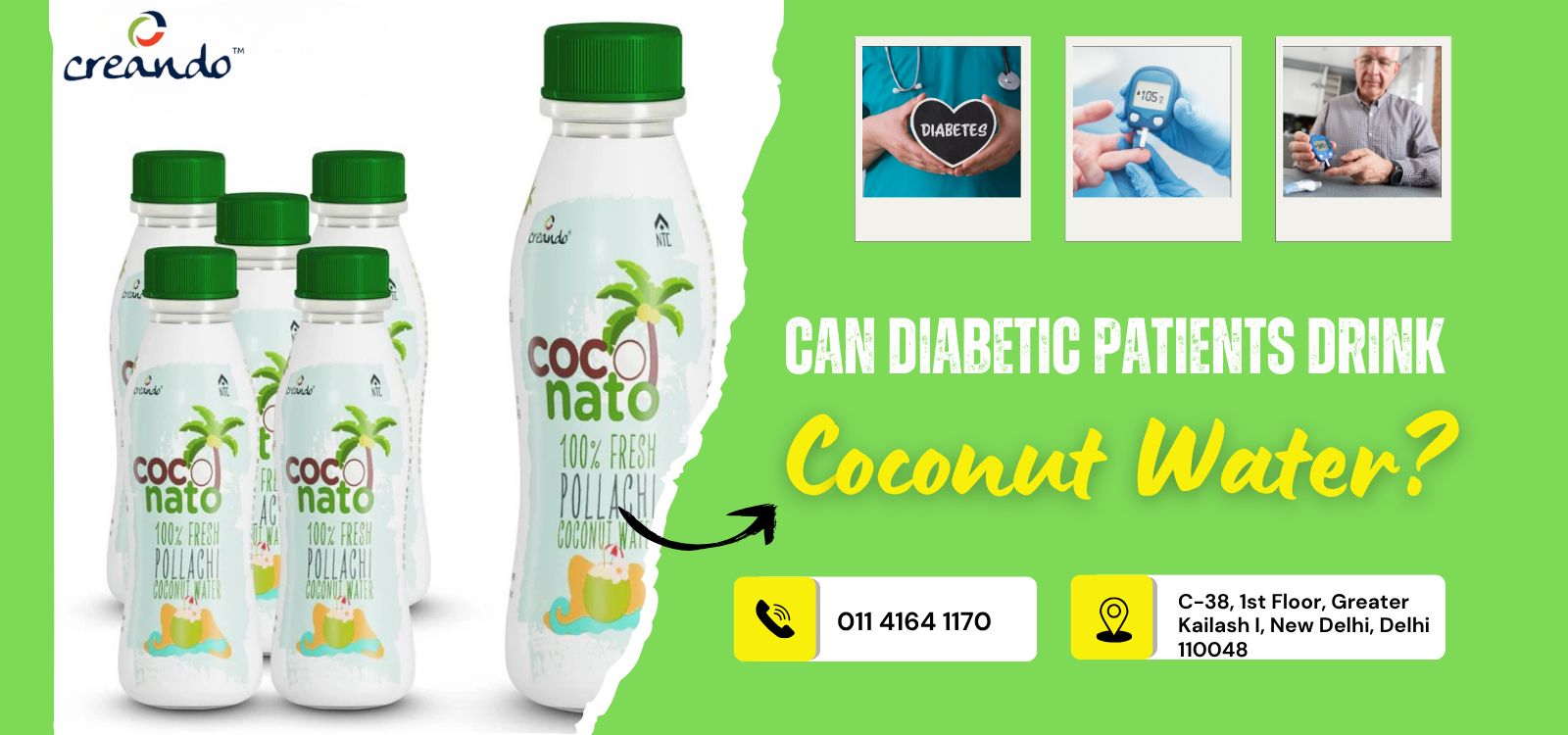Yes, people with diabetes can drink coconut water safely, as long as they don't drink too much. This natural drink is low in sugar and has a low glycemic index, making it a better choice than sugary beverages. Rich in essential minerals like potassium, magnesium, and manganese, along with vitamin C and L-arginine, coconut water may help enhance insulin sensitivity and support blood sugar control.
One of the key benefits is its potential to lower oxidative stress in the body. This is important for diabetics, as high oxidative stress is linked to complications affecting the heart, kidneys, and nervous system. Coconut water also shows promise in improving cardiovascular health by helping reduce cholesterol, liver fat, and triglyceride levels. It might even help keep blood pressure in check and stop blood clots from forming.
While these benefits make coconut water an appealing option, it's important to remember that it still contains natural sugars. Diabetic patients should opt for pure, unsweetened varieties and limit intake to small servings. Though early studies are encouraging, more large-scale research is needed to confirm its long-term impact on diabetes. As with any dietary choice, consulting a healthcare provider is recommended before including coconut water in a diabetic diet.
Important Guidelines for Diabetics When Drinking Coconut Water
While coconut water can be a healthy addition to a diabetic diet, it’s crucial to consume it with caution. Despite its many health benefits, coconut water does contain natural sugars. For individuals with high blood sugar levels, excessive intake could lead to spikes in glucose. Therefore, moderation is key.
Here are some essential tips for diabetic patients who wish to include coconut water in their routine:
-
Choose fresh and unsweetened coconut water. Avoid packaged or canned versions that may contain added sugars or preservatives.
-
Skip the coconut flesh. Coconut meat is high in saturated fats, which can increase the risk of cardiovascular issues in diabetic patients.
-
Time it right. Drinking coconut water in the afternoon may support immune function and heart health.
-
Health conditions matter. People with diabetes who are also pregnant, have arthritis, or suffer from chronic kidney disease should consult a doctor before drinking coconut water.
-
Opt for mature coconuts. These usually have less sugar than tender, young ones.
-
Stick to the limit. A maximum of 250ml per day, ideally divided into two servings, is recommended for safe consumption.
Before making any big changes to your diet, always talk to a doctor or other health care expert.
What Should Diabetic Patients Eat and Avoid?
Managing diabetes involves more than just monitoring sugar intake—it requires a well-balanced, mindful approach to nutrition. Alongside being cautious with beverages like coconut water, diabetic individuals must be selective about the foods they consume to keep their blood sugar levels in check and avoid complications.
Foods Diabetic Patients Should Limit or Avoid:
-
High-Sugar Items: Steer clear of sugary snacks, desserts, sweetened beverages, and dried fruits. These can rapidly spike blood glucose levels.
-
Refined Carbohydrates: White rice, white bread, and other highly processed starches should be replaced with complex carbs like whole grains or legumes.
-
Red Meat: Excessive intake of red meat (beef, lamb) may increase inflammation and raise the risk of heart disease—both of which can worsen diabetes.
-
Saturated Animal Fats: Foods high in animal fat, such as full-fat dairy, ghee, and fatty cuts of meat, can elevate cholesterol levels and contribute to cardiovascular issues.
-
Alcohol & Tobacco: Alcoholic drinks and smoking disrupt blood sugar control and significantly increase the risk of diabetes-related complications.
Recommended Foods for Diabetics:
-
Low-Sugar Fruits: Fruits including guava, oranges, apples, grapefruits, and strawberries are high in fiber, vitamins, and antioxidants yet don't raise blood sugar levels.
-
Leafy Greens & Vegetables: Broccoli, spinach, kale, and watercress are nutrient-dense and help regulate blood sugar while supporting digestion and immunity.
-
Lean Proteins: Skinless poultry and tofu provide essential protein without added fat, supporting stable energy levels and satiety.
-
Fatty Fish: Fish like salmon and sardines promote heart health by lowering bad cholesterol and boosting good cholesterol.
-
Healthy Fats: Nuts, seeds, olive oil, and sesame oil improve blood flow and help manage cholesterol and glucose levels.
-
Nutrient-Rich Seeds: Chia, flax, pumpkin, and sesame seeds are fiber-rich superfoods that help with digestion and blood sugar regulation.
By making informed food choices, diabetic
In summary, this article has clarified whether coconut water is suitable for diabetic patients and outlined essential dietary do’s and don’ts. While coconut water can offer hydration and health benefits, it must be consumed mindfully and in moderation. Maintaining a well-balanced diet rich in fiber, lean protein, and healthy fats—while avoiding sugar-laden foods and unhealthy fats—is key to managing diabetes effectively and preventing long-term complications.
For individuals concerned about their risk of diabetes, early detection is crucial. Vinmec International General Hospital now offers a comprehensive Diabetes Screening Package designed to identify potential issues before they progress. This package is especially beneficial for:
-
Individuals who are overweight or have a BMI of 23 or higher
-
Those with limited physical activity
-
People with a family history of diabetes
-
Individuals with high blood pressure (≥140/90 mmHg)
-
Anyone with elevated blood fat levels (HDL < 0.9 mmol/l or Triglycerides > 2.82 mmol/l)
-
Women who delivered babies weighing 3.5 kg or more
-
People with a history of impaired glucose tolerance or gestational diabetes
-
Those diagnosed with polycystic ovary syndrome (PCOS)
Getting screened early allows for better management and timely lifestyle changes. Don’t wait; protect your health with proactive care.




